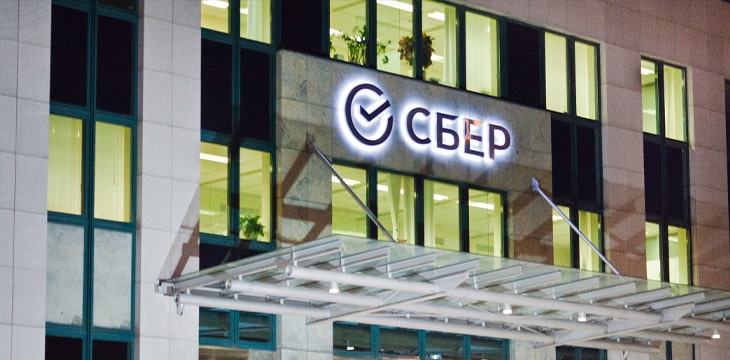|
Getting your Trinity Audio player ready...
|
Russia is inching its way toward a full embrace of virtual currencies, with the latest move being the country’s largest bank issuing gold-backed digital financial assets (DFAs).
The country’s majority state-owned bank Sber announced that the move towards DFAs is part of the broader de-dollarization plan. According to the press release, the bank views DFAs as “a great alternative” to regular investments, given the spike in digital asset adoption.
Sber, formerly known as Sberbank, issued DFAs to Solfer, a leading industry player in precious metals, making it the first investor to lay hands on the new asset class. Other customers looking to add the DFAs to their holdings will have to jostle with each other for 150,000 DFAs with the opportunity to purchase, closing in July 2023.
“Working with precious and non-precious metals, we got excited about the new digital gold format and decided to try out this new method to diversify the company’s balance sheet,” said Solfer CEO Maxim Nazhmetdinov. “The deal was closed fast. We think this new vehicle facilitating precious metals investments may carve out a market niche.”
The press release spelled out the associated risks for individuals keen on acquiring DFAs, including the liquidity risks. It noted that the DFA would be issued and circulated using distributed ledger technology (DLT), with the volume and price determined by real-life gold prices.
“The deal demonstrates that the market and the real economy are interested in the new instrument, which may be a great alternative to investments amid de-dollarization,” said Alexander Vedyakhin, first deputy chairman of Sber.
Russia’s dance with digital assets
Russia has had a wild year with digital assets, with the pendulum swinging wildly across the divide. Before the invasion of Ukraine, Russia’s stance on virtual currencies was stern as regulators viewed them as a threat to the financial system.
However, the imposition of strict economic sanctions by the United States and Western powers forced regulators to consider digital assets as a way around the sanctions. The Ministry of Finance announced that it would legalize the use of virtual currencies in cross-border payments after Russia was kicked out of the SWIFT payments platform.
The Finance Ministry confirmed that it would allow merchants to decide the best way to carry out cross-border payments with minimal interruptions, but the use of digital assets in local payments remains prohibited.
“We have not changed our position that private cryptocurrencies, for which it is not clear who and how is responsible, which are opaque and carry high risks of volatility, should not be used in settlements,” said Elvira Nabiullina, head of Russia’s central bank.
Watch: The BSV Global Blockchain Convention panel, The Future of Financial Services on Blockchain: More Efficiency & Inclusion

 02-26-2026
02-26-2026 




